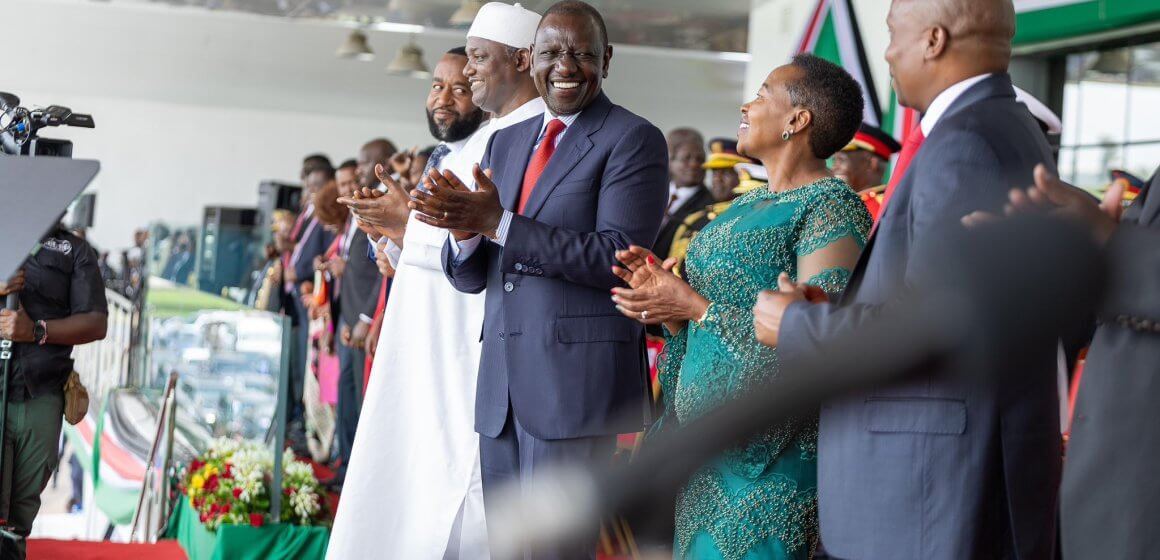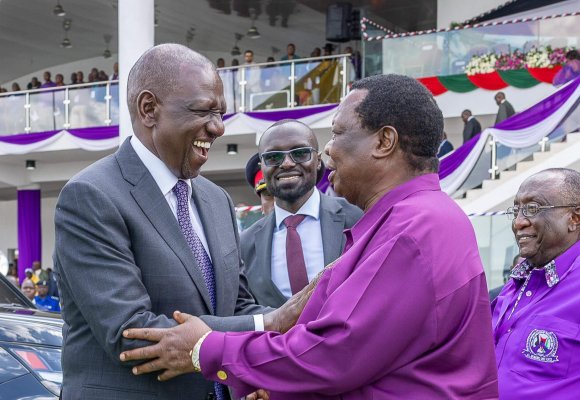|
LISTEN TO THIS THE AFRICANA VOICE ARTICLE NOW
Getting your Trinity Audio player ready...
|
President William Ruto, during the Jamhuri Day celebrations on Thursday, spotlighted his administration’s strides in addressing Kenya’s unemployment crisis by facilitating the migration of over 243,000 skilled workers to international markets. This move, he stated, is part of a broader strategy to create opportunities for the thousands of youths who enter the job market annually.
The president pointed out the importance of expanding Kenya’s labour mobility program, which has become a key pillar of his administration’s Bottom-Up Economic Transformation Agenda. “Our committed interventions are creating jobs and opportunities, and this is only the beginning. We are building on the foundation we have laid to create more jobs going forward,” Ruto said.
In the past two months, approximately 12,000 Kenyans have secured employment abroad in critical sectors such as healthcare, agriculture, and construction. This stems from bilateral labour agreements signed with seven countries, with similar frameworks awaiting signatures from two additional nations. Furthermore, negotiations with 13 other countries are ongoing, with the government targeting the export of up to two million workers abroad once these agreements are finalized.

In his address, Ruto referenced a recent milestone: the departure of a cohort of Kenyan workers to Qatar on December 11 to take up technical roles. The president maintained that his administration’s approach focuses on three fronts—facilitating jobs abroad, creating opportunities locally, and promoting online employment—to tackle the unemployment crisis comprehensively.
The labour mobility program has drawn both applause and criticism. While some hail it as a pragmatic solution to a persistently high unemployment rate, others have raised concerns over its implications for the domestic job market. Critics argue that the program shifts focus from solving internal economic challenges and allege hidden costs for applicants seeking opportunities abroad.
In defense of the initiative, Labour and Social Protection Cabinet Secretary Alfred Mutua clarified that the program is entirely voluntary, and applicants are well-informed of the requirements. “Nobody is forcing you to go or pay; you make the choice. Some companies provide full support, while for others, you might need to cover your airfare,” Mutua explained.
Kenya’s unemployment rate has been a long-standing issue, with thousands of young people graduating each year into a saturated job market. Successive governments have grappled with finding sustainable solutions. By exporting talent to countries facing labour shortages, the Ruto administration seeks to align Kenya’s growing skilled workforce with global opportunities.
Nonetheless, questions linger about whether this strategy compromises the development of Kenya’s local industries. Critics worry that exporting skilled labour may exacerbate brain drain, leaving local sectors understaffed and underdeveloped.











LEAVE A COMMENT
You must be logged in to post a comment.